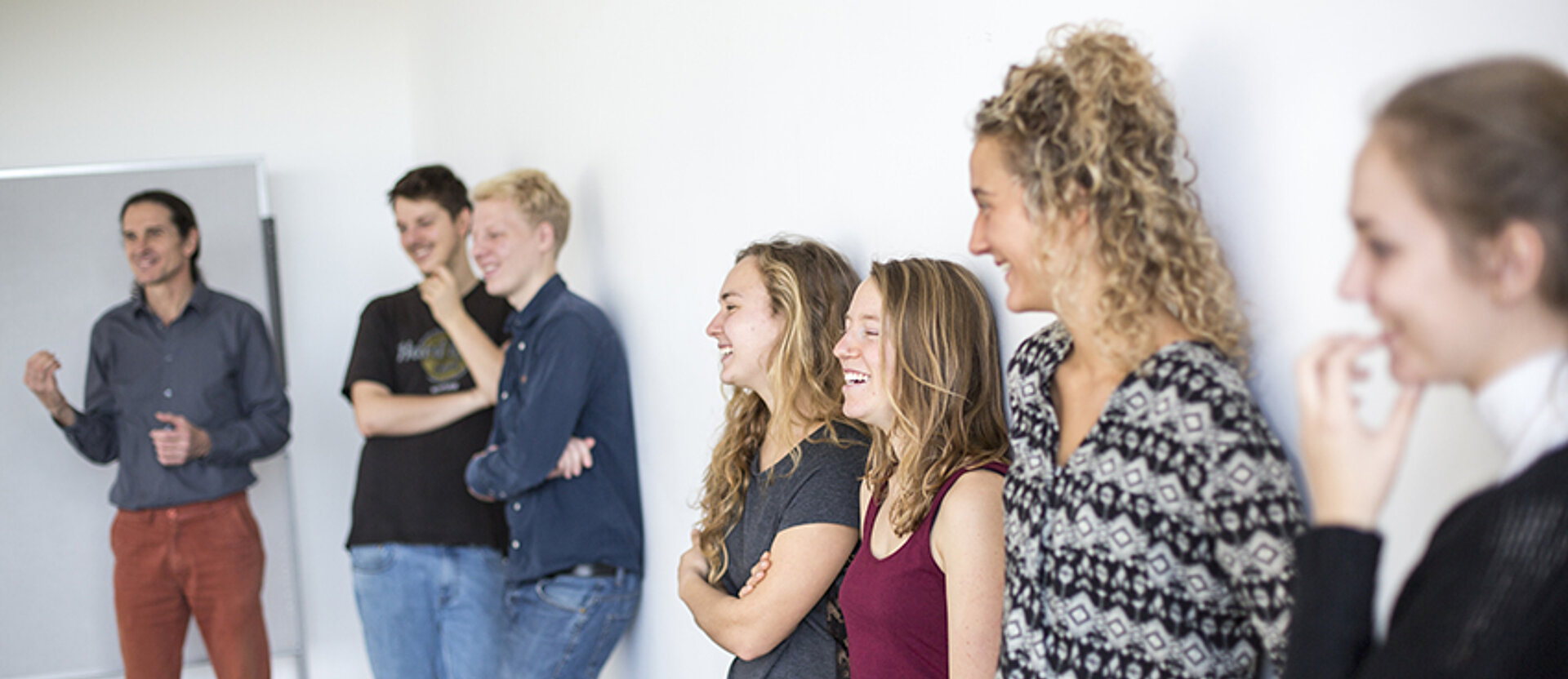What is the Studium Generale?
The multidisciplinary, mixed-year Studium Generale (General Studies) is an essential component of all degree courses. The lectures and seminars in this fundamental supplementary programme encourage students to think independently and critically and inspire them to expand their horizons. The programme imparts orientational knowledge that enables students to find and represent their own points of view in the broader cultural and social context.
The Studium Generale encompasses topics in philosophy, the arts, and the social sciences. Students are free to choose their own focus.
Studium Generale: the cultural, intellectual core of Alanus University
Alanus University is named after Alanus ab Insulis, who was called “doctor universalis” and taught the Seven Liberal Arts in the 12th century. The Studium Generale revives this tradition of a holistic education, which goes beyond one's own special area of study and also provides a foundation for it.
Holistic Personality Development
The Studium Generale is part of a humanistic educational tradition that combines art and science. Studying at Alanus University does more than qualify you to pursue a certain career. It offers you the opportunity to take an active role in educating yourself. The Studium Generale supports you in expanding your intellectual and cultural knowledge as well as your personal and social skills.
Cultural Competence and Orientation
In recent decades, many of our traditional beliefs and values have been called into question. The Studium Generale confronts this situation by encouraging a reflective and creative approach to dealing with issues of meaning and existence. It familiarises students with the history of culture and ideas, critically analyses our society, and opens new perspectives for shaping the present and the future.
Crossing Disciplinary Boundaries
The Studium Generale encourages students to broaden their views by looking beyond their own area of study. This is mainly achieved through interdisciplinary content and the exchange of ideas and opinions with students from other degree programmes.
This crossing of borders in breadth is supplemented by one in depth. Fundamental reflection on the core reference knowledge of all degree programmes leads to the exploration, questioning and, if necessary, creative changing of (often implicit) preheld beliefs (views of humanity and the world).
Independence and Critical Thinking
In this way, the Studium Generale promotes independent, well-founded, critical thinking within the framework of a scientific, artistic and social whole. In addition to training general cognitive abilities, it plays a crucial role in enabling students to find their own aesthetic and social points of view, justify them, and continue to develop them.
Responsible for the Studium Generale is the Institute of Philosophy and Aesthetics. The Studium encompasses two major areas within which students (depending on the degree programme) can set their own focus and generally have freedom of choice. The full-time Bachelor's programmes can choose from among more than 40 lectures/seminars each semester.
Within this framework, the Studium Generale also offers the opportunity to examine, analyse and deconstruct the teachings of Rudolf Steiner in a contemporary and discourse-focused way. This includes the appropriate philosophical exploration as well as critical reflection on the approaches of his teachings in contrast to other points of view.
Philosophy and Education
- Recognition, Humanity and World (theoretical philosophy)
- Ethics and Spirituality (practical philosophy)
Art and Society
- Aesthetics and Art Theory
- Art and Cultural History
- Issues in Social Science
The Studium Generale usually comprises 2 compulsory modules within each degree programme and thus makes up about 10% of the course. The students generally attend one to two lectures/seminars per semester. More information is available in the descriptions of the individual degree courses (module handbook, study plan).
Depending upon the degree programme, students complete the Studium Generale with one or more final module exams. More information is available in the module handbook and the exam regulations of the individual degree programmes.
Students are also free to attend additional lectures/seminars from the Studium Generale throughout the entire period of their studies.


